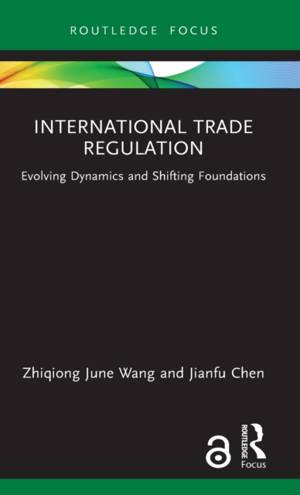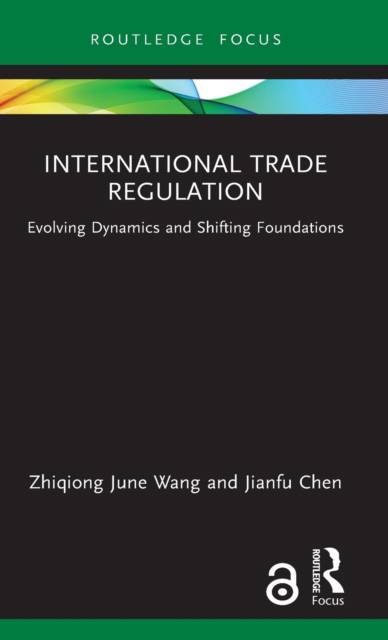
- Retrait gratuit dans votre magasin Club
- 7.000.000 titres dans notre catalogue
- Payer en toute sécurité
- Toujours un magasin près de chez vous
- Retrait gratuit dans votre magasin Club
- 7.000.0000 titres dans notre catalogue
- Payer en toute sécurité
- Toujours un magasin près de chez vous
International Trade Regulation
Evolving Dynamics and Shifting Foundations
Zhiqiong June Wang, Jianfu ChenDescription
The international trade regulatory system is a dynamic system that has been evolving throughout its history. Tension and conflict are part of the system. While calls for the abolition of the principal trade regulation authority, the WTO, have failed to understand this nature of the system, proponents for reforms have so far not paid sufficient attention to the evolving nature of tension and conflict. This book examines the evolving dynamics in international trade regulation from the conclusion of GATT in 1947 to the current crisis facing the WTO, from a perspective of emerging powers of developing countries with a focus of China as the latest force that demands reforms of the international trade regulatory regime.
There is an extensive body of scholarship on ideological struggles, the rise of developing countries, geopolitical contest, the emerging powers (especially China), the use, misuse or abuse of trading rules and so on. There is, however, a lack of a single concise research book that synthesises these underlying causes and factors into a coherent and precise analytical theme. This book attempts to fill this research gap by building upon the existing scholarship and placing the various tensions and conflicts in a perspective that treats them as dynamic factors that have propelled a continuing process of evolution of the international trade regulation.
The book will interest those researching on international trade regulation as well as development studies.
The Open Access version of this book, available at www.taylorfrancis.com, has been made available under a Creative Commons Attribution-Non-Commercial-No Derivatives 4.0 license.
Spécifications
Parties prenantes
- Auteur(s) :
- Editeur:
Contenu
- Nombre de pages :
- 134
- Langue:
- Anglais
- Collection :
Caractéristiques
- EAN:
- 9781032230528
- Date de parution :
- 21-03-23
- Format:
- Livre relié
- Format numérique:
- Genaaid
- Dimensions :
- 140 mm x 216 mm
- Poids :
- 322 g

Les avis
Nous publions uniquement les avis qui respectent les conditions requises. Consultez nos conditions pour les avis.






